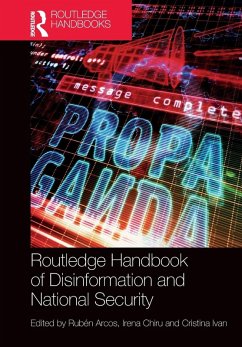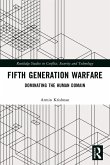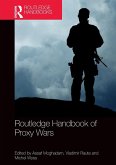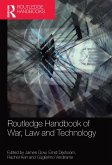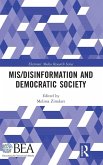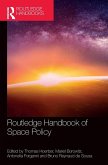This interdisciplinary Handbook provides an in-depth analysis of the complex security phenomenon of disinformation and offers a toolkit to counter such tactics.
Disinformation used to propagate false, inexact or out of context information is today a frequently used tool of political manipulation and information warfare, both online and offline. This Handbook evidences a historical thread of continuing practices and modus operandi in overt state propaganda and covert information operations. Further, it attempts to unveil current methods used by propaganda actors, the inherent vulnerabilities they exploit in the fabric of democratic societies and, last but not least, to highlight current practices in countering disinformation and building resilient audiences.
The Handbook is divided into six thematic sections. The first part provides a set of theoretical approaches to hostile influencing, disinformation and covert information operations. The second part looks at disinformation and propaganda in historical perspective offering case study analysis of disinformation, and the third focuses on providing understanding of the contemporary challenges posed by disinformation and hostile influencing. The fourth part examines information and communication practices used for countering disinformation and building resilience. The fifth part analyses specific regional experiences in countering and deterring disinformation, as well as international policy responses from transnational institutions and security practitioners. Finally, the sixth part offers a practical toolkit for practitioners to counter disinformation and hostile influencing.
This handbook will be of much interest to students of national security, propaganda studies, media and communications studies, intelligence studies and International Relations in general.
Disinformation used to propagate false, inexact or out of context information is today a frequently used tool of political manipulation and information warfare, both online and offline. This Handbook evidences a historical thread of continuing practices and modus operandi in overt state propaganda and covert information operations. Further, it attempts to unveil current methods used by propaganda actors, the inherent vulnerabilities they exploit in the fabric of democratic societies and, last but not least, to highlight current practices in countering disinformation and building resilient audiences.
The Handbook is divided into six thematic sections. The first part provides a set of theoretical approaches to hostile influencing, disinformation and covert information operations. The second part looks at disinformation and propaganda in historical perspective offering case study analysis of disinformation, and the third focuses on providing understanding of the contemporary challenges posed by disinformation and hostile influencing. The fourth part examines information and communication practices used for countering disinformation and building resilience. The fifth part analyses specific regional experiences in countering and deterring disinformation, as well as international policy responses from transnational institutions and security practitioners. Finally, the sixth part offers a practical toolkit for practitioners to counter disinformation and hostile influencing.
This handbook will be of much interest to students of national security, propaganda studies, media and communications studies, intelligence studies and International Relations in general.
'Supported and edited by excellent and up to date experts, this handbook is a most timely and highly pertinent contribution to a multidisciplinary and comprehensive understanding of one of the core challenges for our present and future security in freedom and prosperity. It should be used as a core reference for all academic and operational endeavours in this field.'
Gerhard Conrad, Former Director of the European Union Intelligence Analysis and Situation Centre (EU INTCEN)
'Like nuclear war shaped the XX century, hybrid and information wars will shape the XXI century. On the battlefield and in the AI labs, shaping politics and public opinion, the forces of disinformation threaten freedom and human rights. This book is a powerful handbook for leaders, scholars, and citizens eager to defend democracy.'
Gianni Riotta, Princeton University, USA
'The book makes a useful contribution to the discussion on the complex and vexing subject of disinformation-"false information that is knowingly distributed" (283)-and similar malign government efforts to deceive.'
Michael J. Ard, Johns Hopkins University, Studies in Intelligence Vol. 68(1), March 2024
'Even though disinformation is a complex phenomenon and a truly interdisciplinary field of study, the authors of the book have succeeded in recalibrating the analysis toward intelligence and security studies. Throughout the book a broad set of terminology - disinformation, misinformation, mal-information, etc. - is used to convey various research angles, leaving the authors the freedom to set their own definitions for central concepts.'
Anna-Maria Osula, Journal of Baltic Studies, 55:3, 700-702, July 2024
Gerhard Conrad, Former Director of the European Union Intelligence Analysis and Situation Centre (EU INTCEN)
'Like nuclear war shaped the XX century, hybrid and information wars will shape the XXI century. On the battlefield and in the AI labs, shaping politics and public opinion, the forces of disinformation threaten freedom and human rights. This book is a powerful handbook for leaders, scholars, and citizens eager to defend democracy.'
Gianni Riotta, Princeton University, USA
'The book makes a useful contribution to the discussion on the complex and vexing subject of disinformation-"false information that is knowingly distributed" (283)-and similar malign government efforts to deceive.'
Michael J. Ard, Johns Hopkins University, Studies in Intelligence Vol. 68(1), March 2024
'Even though disinformation is a complex phenomenon and a truly interdisciplinary field of study, the authors of the book have succeeded in recalibrating the analysis toward intelligence and security studies. Throughout the book a broad set of terminology - disinformation, misinformation, mal-information, etc. - is used to convey various research angles, leaving the authors the freedom to set their own definitions for central concepts.'
Anna-Maria Osula, Journal of Baltic Studies, 55:3, 700-702, July 2024

